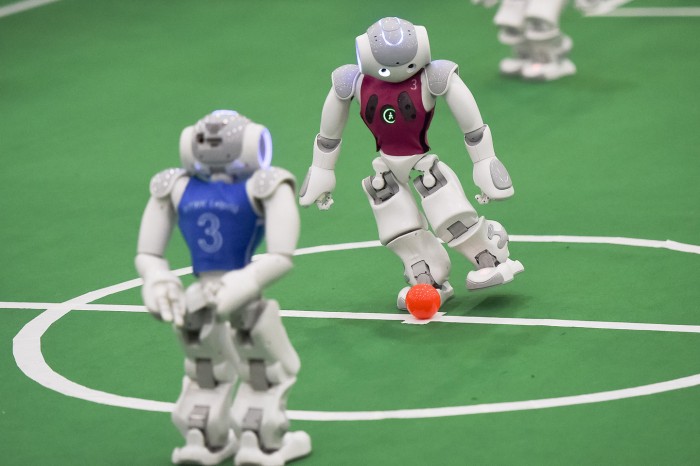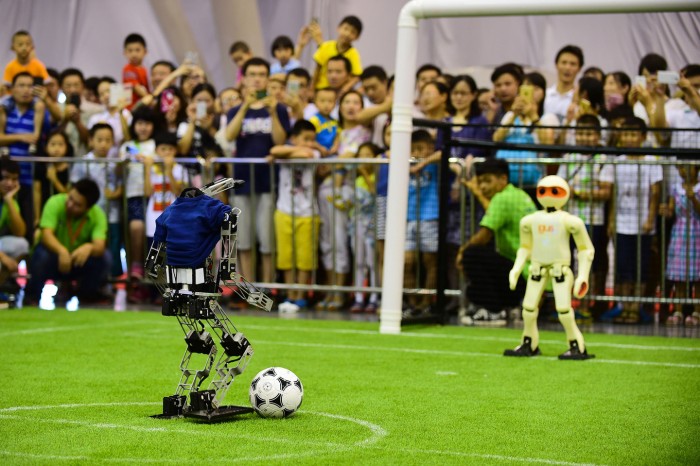RoboCup – the World Cup for robots is being held in China
In China this weekend, tiny robots of all shapes and sizes took to the field in the 19th annual competition, which brings together thousands of contestants from more than 47 different countries and regions. Robots will compete until July 23, when they will crown a RoboCup champion.
This is the second time the RoboCup has taken place in a Chinese city. Suzhou, Jiangsu province, hosted the event in 2008.
More than 2,000 robotics professionals and fans from 47 countries and regions worldwide gathered in Hefei in central China’s Anhui province to take part in a soccer match during the RoboCup 2015. The competition, which ends on 22 July, focuses on three aspects: robot football, service robots and rescue robots.
The five-day annual contest includes robot soccer matches and contests for robots programmed in rescue and home service.
“This year, we have new challenges in each field – new rules, new tasks, new games, etc. These challenges will push us toward our final goals,” RoboCup Federation President Itsuki Noda said.
Noting that a series of battles in Hefei during the late Eastern Han Dynasty (AD 25-200) and the Three Kingdoms period (AD 220-280) lasted about 50 years, Noda said that “our RoboCup target is also set for 50 years. And I hope that like the famous battles of Hefei in the Three Kingdoms, our challenge here will remain in the history books.”
As the world’s largest robot-focused competition, the event also had a special opening ceremony featuring robot technologies. Its interpreting service was undertaken by a robot and two banners used on the occasion were also held by drones.
The RoboCup is not only a competition, but a platform for technicians and science students to learn from each other and transfer the technologies to industrial production, according to one of the event’s organisers.
“Speaking from the perspective of industrialisation, as there are so many excellent technologies displayed here and also so many enterprises coming to hold exhibitions and visit, they can easily launch negotiations and co-operation here,” said Chen Xiaoping, general chair of the event and president of the Chinese committee of RoboCup.

This year marks the 19th edition of the RoboCup, first held in Japan in 1997.
The RoboCup was launched by Japanese researchers in 1993 in an attempt to use soccer to promote the advancement of robotic science and technology in their own country. The ultimate goal was to build a robot soccer team that could compete with human World Cup champion teams by 2050. The project received unexpected attention from researchers outside Japan, who requested that organizers make the contest international. Accordingly, the RoboCup Federation was established and began holding the RoboCup annually in different cities worldwide.
“These games are the most innovative RoboCup in history,” said Chen Xiaoping, president of the Chinese Regional Committee of the RoboCup Federation.
The 19th RoboCup differs from all of the previous games in several aspects, Chen said.
For one, organizers adapted the evaluation standards of service robots to attach more value to cutting-edge technologies.
“For example, face recognition is already a mature technology, so we reduced the score weight on this technology and put more emphasis on innovative technologies like the robots’ ability to recognize people’s movements,” Li said.
The goal of the RoboCup is to create a robotic soccer team that will be able to beat the winner of the World Cup by 2050.





